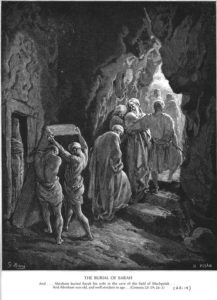The incomparable Rabbi Angela Buchdahl and Elana Arian unite their voices to bring us Bob Dylan’s blessing, Forever Young.
Shabbat Shalom
The incomparable Rabbi Angela Buchdahl and Elana Arian unite their voices to bring us Bob Dylan’s blessing, Forever Young.
Shabbat Shalom
Leon Sher takes the simple prayer of Moses on behalf of his sister Miriam and creates a moment we all need heading into this Shabbat. Shireinu Choir of Long Island offers this gift to us.
Wishing everyone Shabbat Shalom- a Shabbat of Peace, wholeness, and healing.
As 2021 comes to a close this Shabbat, 2022 begins. I share Amanda Gorman’s extraordinary poem, New Day’s Lyric. As we leave the old year behind, may we be open to the possibilities that the new year can bring. Shabbat Shalom and Happy New Year.
“New Day’s Lyric”
May this be the day
We come together.
Mourning, we come to mend,
Withered, we come to weather,
Torn, we come to tend,
Battered, we come to better.
Tethered by this year of yearning,
We are learning
That though we weren’t ready for this,
We have been readied by it.
We steadily vow that no matter
How we are weighed down,
We must always pave a way forward.
This hope is our door, our portal.
Even if we never get back to normal,
Someday we can venture beyond it,
To leave the known and take the first steps.
So let us not return to what was normal,
But reach toward what is next.
What was cursed, we will cure.
What was plagued, we will prove pure.
Where we tend to argue, we will try to agree,
Those fortunes we forswore, now the future we foresee,
Where we weren’t aware, we’re now awake;
Those moments we missed
Are now these moments we make,
The moments we meet,
And our hearts, once all together beaten,
Now all together beat.
Come, look up with kindness yet,
For even solace can be sourced from sorrow.
We remember, not just for the sake of yesterday,
But to take on tomorrow.
We heed this old spirit,
In a new day’s lyric,
In our hearts, we hear it:
For auld lang syne, my dear,
For auld lang syne.
Be bold, sang Time this year,
Be bold, sang Time,
For when you honor yesterday,
Tomorrow ye will find.
Know what we’ve fought
Need not be forgot nor for none.
It defines us, binds us as one,
Come over, join this day just begun.
For wherever we come together,
We will forever overcome.
Tonight, Christmas Eve coincides with Shabbat. Beethoven’s Ode To Joy summons us to remember the extraordinary things that can unite us. This flashmob in Nurenberg is a fitting reminder “Behold, How good it is to dwell as brothers.”
Shabbat Shalom (and Merry Christmas)!
It is the Shabbat within Hanukah (as it is an eight-day holiday, there is always one)
Six13 brings us this great medley mash-up of Hanukah meets West Side Story.
Enjoy, with candles and sufganiyot!
Chag Urim Sameach and Shabbat Shalom
Debbie Friedman brought a whole new style of joy and love into Jewish liturgy.
Her music continues to inspire us. This rendition of Ahavat Olam, the prayer leading to the Shema, is a timeless reminder of her gifts as we prepare for Shabbat.
Shabbat Shalom
Mikolot Mayim Rabim the voices of the great waters~
Taken from Psalm 93 helping us welcome Shabbat. Nava Tehila shares their enchanting music.
Shabbat Shalom
 A friend of mine used to carry around a change purse in which he had a bunch of small angel pins made of Swarovski crystals. Whenever he engaged someone new, he concluded by wishing them a blessed day and giving them a crystal angel. The gift usually caught the recipient off guard but always deeply grateful for the gesture. The crystal angel brought a smile to the lips of most, a tear to the eyes of some, but everyone would remember that uplifting encounter with their new friend Thom.
A friend of mine used to carry around a change purse in which he had a bunch of small angel pins made of Swarovski crystals. Whenever he engaged someone new, he concluded by wishing them a blessed day and giving them a crystal angel. The gift usually caught the recipient off guard but always deeply grateful for the gesture. The crystal angel brought a smile to the lips of most, a tear to the eyes of some, but everyone would remember that uplifting encounter with their new friend Thom.
All of us are struggling with the emotional and spiritual effects of the pandemic. Even people predisposed to being kind are finding their well of kindness in need of being replenished. We all could use Thom to give us an angel to make our hearts smile. We can do this for each other.
We don’t need to carry around an inventory of pins. Instead, we need to offer a smile and a kind word (or two). Look at the person in front of you and see them- they are as exhausted as the rest of us. So offer them what you need yourself, a smile and a kind word. To the check-out person, smile and say “thank you” (yes- two words). To the person walking into the store, hold the door and say, “you’re welcome” (that will respond to them saying thank you).
It is a respite from the storm, an act of humanity when we desperately need it- and giving it is as comforting as receiving it, for your heart knows you just did a kind thing.
Our tradition tells of angels coming to bless us for Shabbat. So, as we move toward this Shabbat, may we all reach out with kindness to friends and strangers alike and make our world a little better, one smile at a time.
In Judaism, it is pretty straightforward. We have a series of rituals and traditions that serve to guide us. But the answer is more nuanced depending in considerable measure on who you are and the relationship to the deceased.
 Judaism compels us to “do the right thing.” It is one of our tradition’s great insights. Doing what we are supposed to do is affirming the bereaved’s humanity and sense of ethics. Even if the relationship was fraught, Judaism provides the ability to rise above circumstances instead of becoming a victim to circumstances.
Judaism compels us to “do the right thing.” It is one of our tradition’s great insights. Doing what we are supposed to do is affirming the bereaved’s humanity and sense of ethics. Even if the relationship was fraught, Judaism provides the ability to rise above circumstances instead of becoming a victim to circumstances.
In this week’s Torah portion, Chayei Sarah, we read that when Sarah died, Abraham wept (Genesis 23:2). But as is the case with Torah, there is more here than the words of the verse. The Torah has one of the letters of the Hebrew word for wept, livkotah, the kaf, printed physically smaller than the other letters. Our sages saw this as purposeful and concluded that this indicated that Abraham cried only a little. Why would Abraham not weep fully?
Perhaps he was overcome by guilt, bearing responsibility for her death. Midrashim tell of Sarah dying of a broken heart when she learns Abraham took their precious son Isaac and sacrificed to God on Mount Moriah. And to further compound things, Abraham knows in his heart that he would do the same thing again to prove his loyalty to God.
There are many reasons why we are unable to be fully present when we experience loss.
For example, Abraham negotiated for the burial cave and immediately focused on sending his servant to find a wife for Isaac. Most of us have experience with people focusing on funeral planning as a means of diversion from confronting the pain of loss. And many people experience complicated grief or ambivalence over the death of someone ostensibly close.
Our tradition offers us a roadmap of sorts when for the process of death and grief. My teacher Rabbi Dr. Michael Chernick wrote that we have obligations and responsibilities as the surviving loved one. Whether we loved them or even liked them, whether they were good to us or not, for our own sake, we need to do certain things on behalf of those who die. So we learned that despite Abraham’s weeping, or lack thereof, he purchased the cave at Machpelah and buried Sarah there.
As a rabbi, I am often asked how do I bury my loved one correctly? The fact that someone would ask means that, on some level, they already are. Together we can explore ways to help them.
But that is different from dictating what to do or how to feel. We have a framework. The task is to understand how our tradition can provide the honor of the deceased and comfort for the bereaved.
Recently, two adult children asked me to officiate the unveiling for their father. Then they changed their minds, cavalierly saying that as only a couple of prayers need to be spoken, they could do it without the expense of a rabbi in attendance. Besides, he (their father) never would have won father of the year.
As I listened, I knew that they would honor their father, but I also knew they were about to miss out on that crucial second piece of our tradition’s wisdom, finding their comfort. We spent some time talking as I was wearing my chaplain’s kippah. But I didn’t press. I hoped they might process the unveiling and the loss in a constructive way and bring them comfort and healing.
How do you process complicated grief? Abraham demonstrates that the question has been around for a long time. So may we find comfort in our memories of those deceased as we embrace the idea that they may be for us a blessing.
Haskiveinu is the second prayer we share after the Shema, asking for God’s protection through the night ahead.
Dan Nichols has created this wonderful music bringing Hashkiveinu into our hearts. Close your eyes and let the music in.
Shabbat Shalom